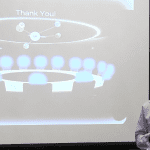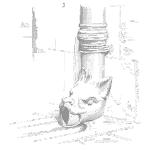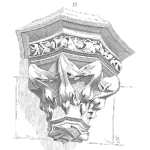
The Plan: Saturday and Sunday was skiing in Vermont with the family, back Sunday night, everyone off to school Monday morning, then to the airport to get to Miami, Tuesday and Wed meetings down there, then fly out Wed night so I’m back to teach classes Thur and Fri here in Boston. Easy Peesie!
Actual: Finish ski trip feel a little “strange” on flight down to Miami, slight chills. Tuesday do meetings just barely, Tuesday night it hits like a freight train, The Flu, or Malaria, Aliens. On Wednesday the freight train had fully passed over me so it stopped and spent Wed backing up over me again. Thursday it went forward again over a pile of human jello. I’m not flying out for the clases on Thur and Fri, or anytime soon for that matter. Just getting home is my mission for the week.
















